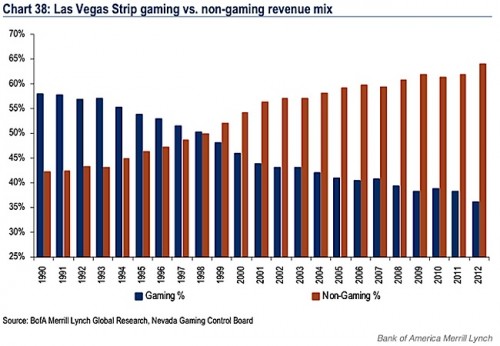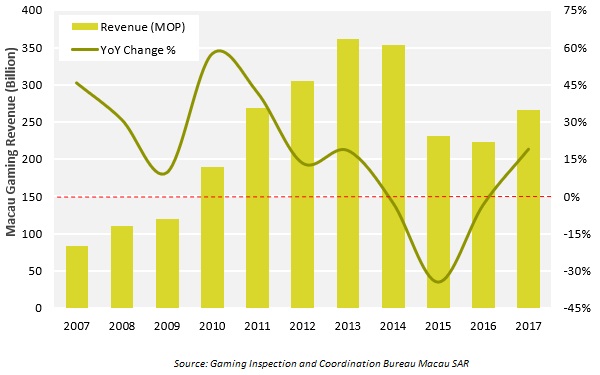N a keynote speech delivered by Sen. Eric Lesser on Monday, he highlighted that allowing adults 21 or older to bet on professional sports in person and online in Massachusetts would generate meaningful, but not game-changing, revenue for the state. Gross gaming revenue (GGR), also called game yield, is a key metric used by gambling and betting companies. It reflects the difference between the amount of money players wager minus the amount that they win. It is important to note that gross gaming revenue is equivalent to 'sales' or 'revenue' - not 'profit' or 'earnings'.
Gaming brought in $7.30bn of SJM’s revenue, down 78.0%. Gaming revenue in Macau as a whole for 2020 was down 79.3% year-on-year following closures and travel restrictions, though the last restrictions for travellers from mainland China were lifted yesterday.
Breaking this gaming revenue figure down further, non-VIP table games brought in $5.86bn, a 76.7% decline. VIP gaming revenue dropped 85.1% to $2.04bn and slot revenue declined 68.0% to $379.3m. This resulted in gross revenue of $8.28bn, of which $971.0m was removed through bonuses and commission.
Hotel, catering and other revenue also declined rapidly, by 71.3% to $202.5m.
SJM’s flagship Casino Grand Lisboa venue brought in $2.07bn in revenue for the year, down 84.0%. Other SJM-promoted casinos brought in $1.35bn, down 78.5% and revenue from satellite casinos – which are operated through service agreements between SJM and third party promoters – dropped 84.5% to $4.85bn.

After paying $3.37bn in gaming taxes and levies, down 78.3%, SJM was left with $3.94bn, down 77.6%.
SJM’s operating expenses came to $7.26bn, with the vast majority, at $7.10bn, in general and administrative expenses. It paid an additional $124.7m in marketing expenses, down 98.0%.

This led to a net loss of $3.15bn, compared to a $3.37bn profit in 2019.
After $22.5m in tax, down 56.4%, SJM’s post-tax loss was $3.17bn, after a $3.32bn profit the year before.

The business also incurred a $313.7m loss through the change in fair value of investments, leading to a $3.49bn total comprehensive loss, compared to 2019’s $3.27bn total comprehensive profit.
February’s gambling revenue in Macau was up massively year-over-year as the market passed the one-year mark since the COVID-19 pandemic took hold in China.
According to numbers released by the Gaming Inspection & Coordination Bureau, the casino market in the former Portuguese colony won $15.14 million from gamblers during the month. Those figures represent a 135.6% year-over-year increase from February 2020.
Gaming Revenue Macau Jobs
It’s not a complete apples-to-apples comparison, however as the pandemic hit China before the rest of the world. For 15 days in February 2020, the government forced casinos to shutter, which crushed earnings for the month since properties were only open for less than half the month.


It’s a slight decline from the $1 billion won by casinos in January, but the three fewer days could account for that difference. Revenue is still down 71%, however from February 2019 before the virus began ravaging gambling markets worldwide.
The increase snaps a 17-month streak of year-over-year declines as the market was experiencing a pullback even before the virus was introduced into the world.
Gaming Revenue Macau Las Vegas
Tourism to Macau generally increases during February, but arrivals to Macau dropped by 65 percent as the government urged citizens to stay home. Despite the warnings, Chinese officials allowed tourists to enter Macau from the mainland, which sent casino stocks soaring, according to a report from Yahoo! Finance.
Wynn Resorts, Las Vegas Sands Corp and MGM Resorts all saw spikes earlier this week. Las Vegas Sands Corp recently sold its Las Vegas properties so that it can focus its efforts on the Asian markets. It also renamed itself Sands Corp.
Gaming Revenue Macau Government
The government removed restrictions for citizens from the mainland to enter as well, which should further boost the market’s recovery in the coming months.